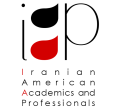Where: Montgomery Community College (Rockville Campus) – Humanity Building (HU), Conference Room 009 (Get Directions, Campus Map )
Language: Farsi

Synopsis:
Iran’s incentivized system of organ donations includes a scored system of transplant waiting lists for organ recipients, exemption of organ donors from military service, and a compensated scheme of organ donations. The latter aspect of the Iranian system has been of interest in the debates on compensated organ donations, but has invariably been misunderstood as a system that authorizes the sale of organs. The possibility of providing compensation and the question of the sale and purchase of organs are not synonymous. The possibility of providing some form of compensation, regardless of whether or not it is done with the purpose of providing financial incentives to donors, does not necessarily have to be through the sale and purchase of organs. Conflating the two has led to some ambiguities and misunderstandings about the regulated framework of organ transplants in Iran, to such an extent that the terms “kidney sellers,” “organ sales” and “kidney eBay” have been used in describing the “Iranian model.” This lecture will clarify the legal qualification of human organ donations in Iran and the implications for policy in the US.
About the Speaker:
Hooman Movassagh started teaching in 2002 and has taught various courses on international law, human rights and philosophy of law in Iran and the United Arab Emirates. He received his LL.B. in 1998, LL.M. (2000) and Ph.D. (2009) in international law. His interdisciplinary Ph.D. thesis focused on the study of human cloning and human rights, involving issues of international law, human rights law and theory, and moral theory.
He has spoken at numerous national and international conferences and has had practical experience as legal consultant to various corporations, NGOs and public entities. He was actively involved in the debates concerning Iran’s possible accession to the Convention Against Torture (CAT-1984) and the Convention on the Elimination of All Forms of Discrimination Against Women (CEDAW- 1979). Movassagh was one of the main researchers of a national study for the preparation of a Draft Bill for the establishment of a National Mechanism for the Rights of the Child in Iran that was supported by various international and national entities including UNICEF and Iran’s Ministry of Foreign Affairs.
A member of the editorial board of the Iranian Yearbook of International and Comparative Law, his research, publications and translations include issues on international law and organizations, human rights, humanitarian law, jurisprudence, and bioethics. His current research includes the legal and ethical dimensions of human organ transplants, the role and scope of the concepts of “harm” and “public morals” in the limitation of individual liberty within the context of international human rights law, and the paradigmatic challenges of human rights and Islam.
Movassagh is one of the original faculty members of the Center and UNESCO Chair for Human Rights, Peace and Democracy of Shahid Beheshti University (Tehran, Iran) and is the director of the Bioethics Group of that chair. He has been a scholar in residence at the University of Virginia School of Law since September of 2012.”
Fee (including dinner): $5 Students, $15 Public
Please click here to RSVP.


